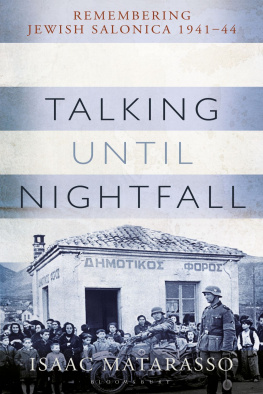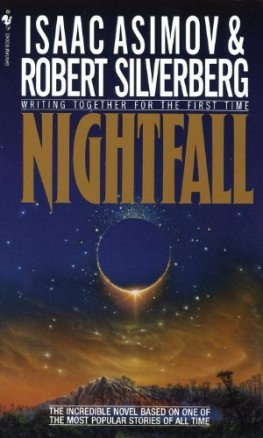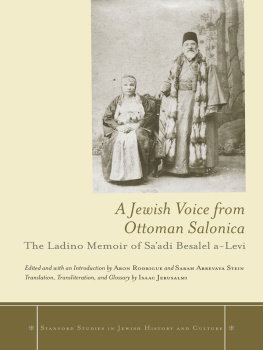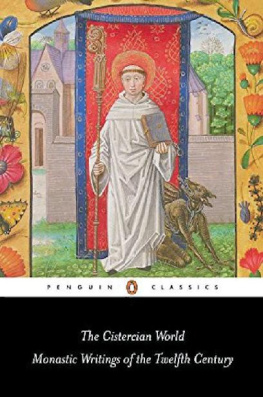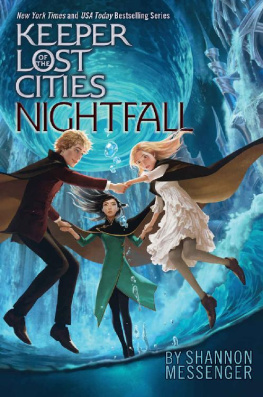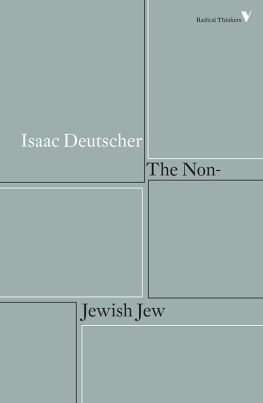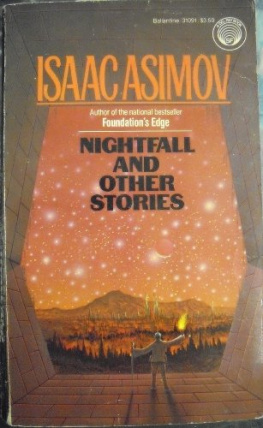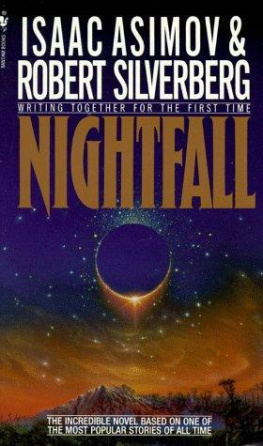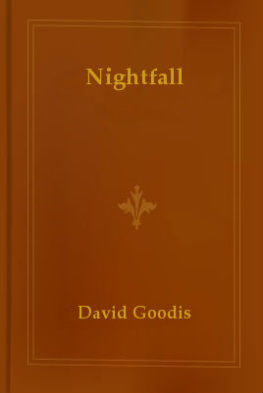Isaac Matarasso - Talking Until Nightfall: Remembering Jewish Salonica, 1941–44
Here you can read online Isaac Matarasso - Talking Until Nightfall: Remembering Jewish Salonica, 1941–44 full text of the book (entire story) in english for free. Download pdf and epub, get meaning, cover and reviews about this ebook. year: 2020, publisher: Bloomsbury Publishing, genre: Detective and thriller. Description of the work, (preface) as well as reviews are available. Best literature library LitArk.com created for fans of good reading and offers a wide selection of genres:
Romance novel
Science fiction
Adventure
Detective
Science
History
Home and family
Prose
Art
Politics
Computer
Non-fiction
Religion
Business
Children
Humor
Choose a favorite category and find really read worthwhile books. Enjoy immersion in the world of imagination, feel the emotions of the characters or learn something new for yourself, make an fascinating discovery.
- Book:Talking Until Nightfall: Remembering Jewish Salonica, 1941–44
- Author:
- Publisher:Bloomsbury Publishing
- Genre:
- Year:2020
- Rating:3 / 5
- Favourites:Add to favourites
- Your mark:
- 60
- 1
- 2
- 3
- 4
- 5
Talking Until Nightfall: Remembering Jewish Salonica, 1941–44: summary, description and annotation
We offer to read an annotation, description, summary or preface (depends on what the author of the book "Talking Until Nightfall: Remembering Jewish Salonica, 1941–44" wrote himself). If you haven't found the necessary information about the book — write in the comments, we will try to find it.
Talking Until Nightfall: Remembering Jewish Salonica, 1941–44 — read online for free the complete book (whole text) full work
Below is the text of the book, divided by pages. System saving the place of the last page read, allows you to conveniently read the book "Talking Until Nightfall: Remembering Jewish Salonica, 1941–44" online for free, without having to search again every time where you left off. Put a bookmark, and you can go to the page where you finished reading at any time.
Font size:
Interval:
Bookmark:


Dedicated to the memory of
Isaac Matarasso (18921958)
Robert Matarasso (19271982)
and the entire Jewish community of Salonica
who suffered under the Occupation (194144)
For the dead and the living, we must bear witness.
Elie Wiesel

Contents
Pauline Matarasso
Isaac Matarasso
Isaac Matarasso
Isaac Matarasso
Robert Matarasso
Franois Matarasso
Can there be anything left to say about the Shoah? Surely every story has been heard, every angle covered, every opinion expressed. And yet, time passes. Those who survived, who saw and witnessed, are reaching the natural term of their lives. New generations inherit the bad with the good. They need to know what happened, because it did. It is not necessary to say anything new about these events. It is necessary only to say it again, like a prayer, not because it makes something happen, but because it might change us.
This book gathers the testimony of witnesses, and of those who knew them: three generations of a family. Isaac Matarasso (18921958) and his son, Robert (19271982), survived the German occupation of Salonica (Thessaloniki, in Greece) and the almost complete destruction of an ancient Jewish community. Isaac (IM) was a doctor and took an active part in the communitys social services and cultural life. He made notes as events took place and wrote a full record after the Liberation, submitting his reports (in French) to relief agencies, and publishing articles (in Greek) in the newly revived Jewish press. Most of this material was collected into a small volume, published as ... And Yet Not All Died... in Athens in September 1948. It was the first account of the Shoah available in Greek, and that text, newly translated by his daughter-in-law from IMs original French, forms the centre of this book (Part III).
The report is striking in its objective tone, as the writer places himself in the service of his community and almost 50,000 murdered co-religionists. He and his extended family make no appearance: this is a collective experience. But Isaac Matarasso also wrote some much more personal pieces, tributes to friends he had lost and glimpses of life under Nazi brutality, which reveal other facets of his attractive, principled character. They were not published in his lifetime, appearing in French Jewish periodicals only after his death. These are published here in English for the first time and comprise Part IV.
Robert Matarasso (RM), the only child of Isaac and his French wife, Andre, was 14 when the German army took Salonica in April 1941; he was 17 when they left. By then, he had witnessed terrible things, including the ghetto, deportations, prison, and months with the Greek Resistance, separated from his parents. He was lucky to be alive. The city in which he had spent a happy childhood, the community where he felt at home, were gone. The reunited family moved to Athens in the spring of 1946, and he subsequently left for Paris to escape the Greek Civil War. In 1953 he married Pauline ( ne Sanderson), and later they moved to England. In his early fifties he began to write a memoir of his wartime experiences, but he died suddenly, without completing it. Extracts from that document, written in English and introduced by his widow, are included as Part V.
Pauline Matarasso (b. 1929) knew IM during the last ten years of his life, and formed a deep bond with her father-in-law, who had seen so much but kept faith with humanity. She has written a biographical introduction, drawing on her recollections, family letters and other sources. A translator and historian, she has prepared all the English versions of the French texts. Her affectionate portrait of Isaac Matarasso opens the book as Part I.
It is followed, in Part II, by a short text in which IM recalls his life as a medical student in France before and during the First World War, when he met Andre ( ne Rey), whom he married and brought home to Salonica, and whose Catholic origins would play a part in the familys survival. Written towards the end of his life, this meditative sketch evokes a happier time before the catastrophe of the Nazi occupation and so makes an appropriate overture.
Franois Matarasso (b. 1958) is the third of Robert and Paulines four children. He pressed his father to write down his memories, and since Roberts death he has followed that path in other ways. With Pauline, he researched and co-edited this book, which grew from involvement in a scholarly edition of the Greek text published in Athens in 2018. His reflections close the book as Part VI.
Other people have played important roles in the gradual evolution of this book, and we are grateful for the contribution of each one. Professor Fragiski Ampatzopoulou, who edited the new Greek edition, provided the impetus to gather memories and material. Dimitrios Varvaritis generously shared his research into Isaac Matarassos publications and unpublished reports, providing an invaluable inventory that helped clarify key points in the story. Eleni Beze, a historian and herself the granddaughter of the printer and fellow survivor who published ... And Yet Not All Died... in 1948, provided precious information about IMs post-war work for the Jewish communities of Salonica and Greece. Rena Molho has offered knowledge and support over many years. Thanks are also due to Dom Erik Varden OCSO and Dr Brian Klug, Senior Tutor in philosophy at St Benets Hall, Oxford. The events described here have touched three generations of the Matarasso family. We remember Albert and Lucie, David, Alice and Ham; Maurice and Denise, Ninon, Henri, Sam, Nelly, and Charlie; and thank the younger members: Paul; Martine, Michel; Aliki, Nora; and Isaacs other grandchildren, Pascale, Antoine, and Veronique.
This book places all the writings of Isaac Matarasso on the Shoah in Salonica before English-speaking readers for the first time. It has allowed the family to provide a proper context, in which personal memory, letters and other documents all play a part. It will be evident from the books diverse voices, as well as its uncertainties and gaps, that this account makes no claim of finality. But it is closed, as far as the family is concerned: a sacred duty imposed by the custodianship of those primary sources is being discharged. What is known is made available here, and historians can draw on these sources in the continuing task of understanding what happened in Salonica, in Greece and in Europe during the Nazi period. Memory that does not become history is lost. This book is an attempt to ensure that what must not be lost is remembered. It is, after all, necessary to say it again.
Pauline Matarasso
Je lis trois fois vos lettres. Lisez deux fois les miennes.
Bearing Witness
The tale presented on these pages in book form is layered with meanings. It is first and foremost a story, a true-to-life story a true-to-death story. The events that make it a story were lived, seen or heard by those who later wrote them down: the witnesses. And in the words of witnesses events live on with a unique authenticity so long as there are others left to say: I saw them, touched them, ate with them, and they were men and women you can trust.
The principal document was written between January 1945 and January 1946 by Isaac Matarasso, my father-in-law.message Tell the living, to the Epilogue, where he spells it out:
Font size:
Interval:
Bookmark:
Similar books «Talking Until Nightfall: Remembering Jewish Salonica, 1941–44»
Look at similar books to Talking Until Nightfall: Remembering Jewish Salonica, 1941–44. We have selected literature similar in name and meaning in the hope of providing readers with more options to find new, interesting, not yet read works.
Discussion, reviews of the book Talking Until Nightfall: Remembering Jewish Salonica, 1941–44 and just readers' own opinions. Leave your comments, write what you think about the work, its meaning or the main characters. Specify what exactly you liked and what you didn't like, and why you think so.

